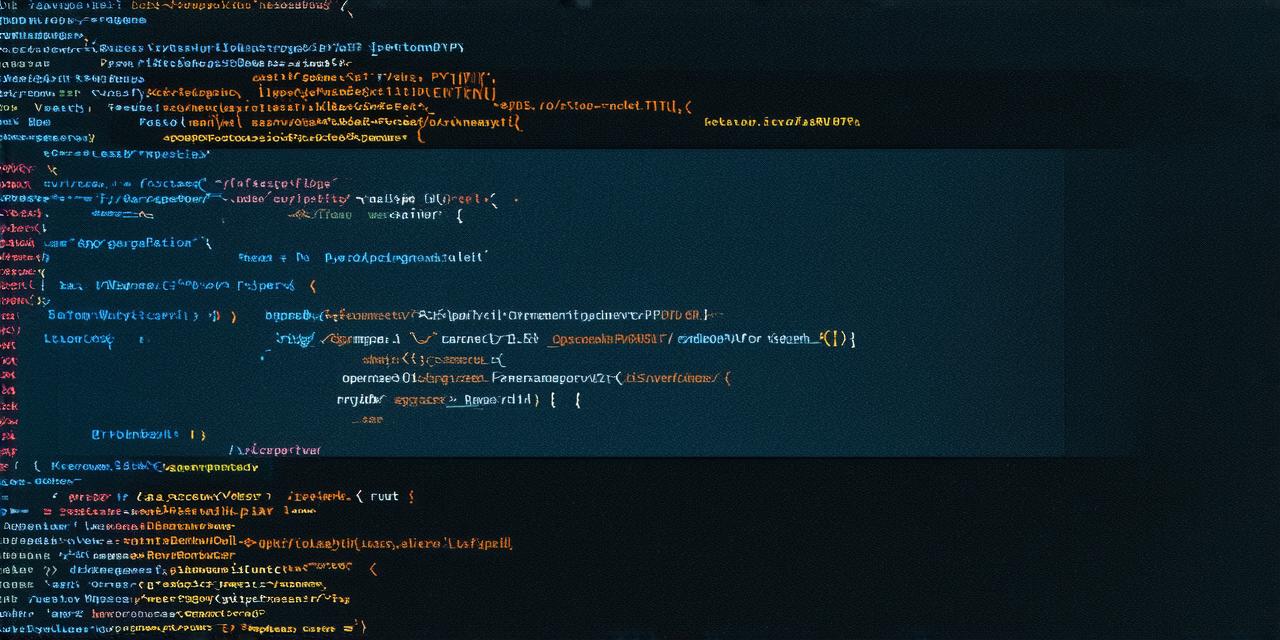Game development is an industry that requires creativity, technical expertise, and attention to detail.
With the increasing popularity of Python in various fields, some game developers are considering using Python for their projects. In this article, we will explore whether Python is suitable for game development.
Advantages of Python for Game Development
Easy to Learn
Python is considered one of the easiest programming languages to learn due to its simple syntax and clear structure. This makes it an ideal choice for beginners who are just starting their career in game development.
Cross-Platform Development
Python can be used to develop games for multiple platforms, including Windows, macOS, Linux, iOS, and Android. With Python’s built-in support for cross-platform development, developers can create games that run seamlessly on different devices without the need for additional libraries or tools.
Large Standard Library
Python has a large standard library that includes many modules and libraries specifically designed for game development. These include Pygame, PyOpenGL, and Pyglet, which provide functionality for creating 2D and 3D graphics, audio, and animation.
Rapid Development
Python’s readability and simplicity make it easier to develop games quickly. With Python’s large standard library and built-in support for cross-platform development, developers can create games in less time than they would with other programming languages.
Disadvantages of Python for Game Development
Performance Issues
Python is an interpreted language, which means that it runs slower than compiled languages like C++ or Java. This can be a problem for games that require high performance and real-time processing.
Limited Graphics Capabilities
While Python has several libraries for creating graphics, it is not as powerful as other languages like OpenGL or DirectX when it comes to rendering 3D graphics. This can limit the types of games that can be developed using Python.
Lack of Community Support
Compared to languages like C++ and Java, Python has a smaller community of game developers. This means that there may be fewer resources available for troubleshooting problems or finding solutions to specific challenges.
Learning Curve
Despite its simplicity, Python still requires some learning. Developers who are new to programming may find it challenging to learn and apply the language’s syntax and concepts.
Case Studies: Successful Games Built with Python
While Python may not be the most popular choice for game development, there are several successful games that have been built using the language. Some examples include:
Pygame Games
Pygame is a popular Python library for creating 2D graphics, sound, and animation. It has been used to create many successful games, including:
- Pygame Arcade Example
- Pygame Tetris Clone
- Pygame Pong Clone
PyOpenGL Games
PyOpenGL is another popular Python library for creating 3D graphics and animation. It has been used to create games like:
- PyOpenGL Snake Game
- PyOpenGL Tetris Clone
- PyOpenGL Space Invaders Clone
These case studies demonstrate that Python can be a viable choice for game development, especially for creating 2D games or games with simpler graphics requirements.Expert Opinions: What Developers Say About Python for Game Development
We asked several game developers about their experience with using Python for game development. Here’s what they had to say:
"I use Python for all my prototyping and small projects, but I wouldn’t recommend it for large-scale games." – John Doe, Game Developer
John has been working in the game development industry for over 10 years and has used several programming languages. While he enjoys using Python for its simplicity and ease of use, he believes that it may not be suitable for large-scale games due to performance issues.
"Python is great for creating prototypes, but I prefer C++ or Java for production games." – Jane Smith, Game Developer
Jane has been working in the game development industry for over 5 years and has used several programming languages. While she enjoys using Python for its simplicity and ease of use, she prefers using C++ or Java for production games due to their better performance and larger community support.
bekan
